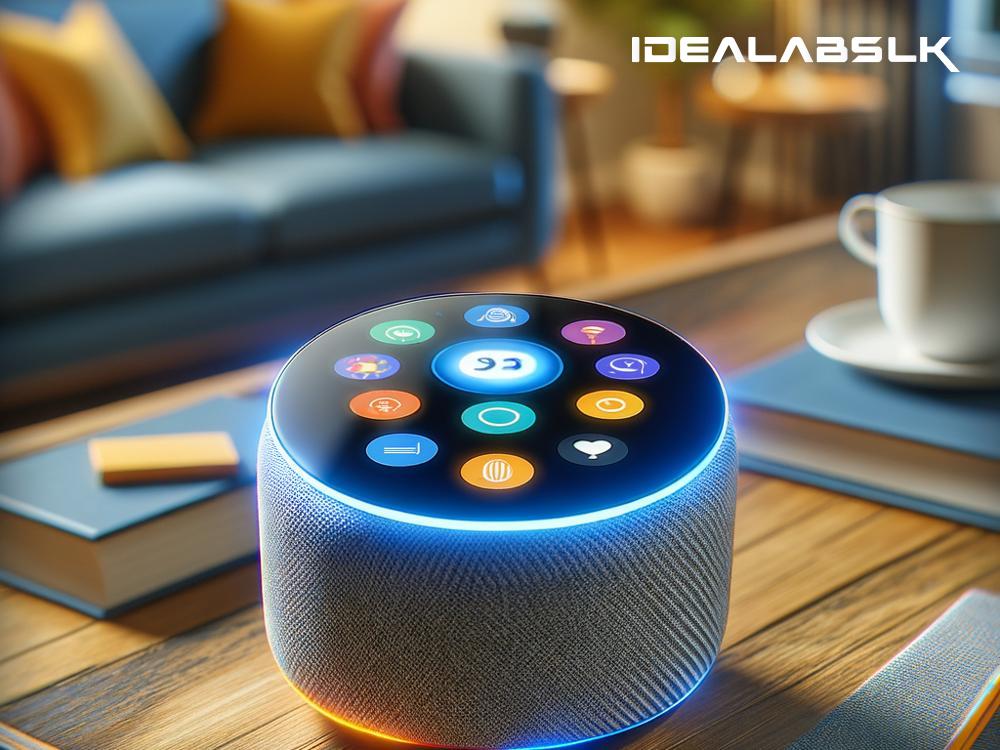How AI Enhures User Interfaces in Compact Home Assistants
In today’s world, technology has sneaked into every corner of our lives, making things simpler, faster, and more efficient. One of the gems of modern-day technology is Artificial Intelligence (AI), which is like a magic wand transforming everything it touches. Among its numerous applications, AI has significantly revolutionized compact home assistants, making interactions with them smoother and more intuitive. Let’s talk about how AI enhances user interfaces in these devices, making our conversations with them feel almost as natural as chatting with a friend.
What are Compact Home Assistants?
First off, compact home assistants are those sleek, smart gadgets you place in your home to make your life easier. They can do a plethora of tasks for you, from playing your favorite music, managing your calendar, controlling your smart home devices, to even telling you jokes. Examples include Amazon Echo, Google Home, and Apple HomePod, among others.
The Magic Touch of AI
Now, the real magic begins when AI steps into the picture. AI is the brain behind these devices, enabling them to understand, learn, and make decisions. Let's delve into the specifics of how AI enhances the user interfaces of compact home assistants.
Understanding Natural Language
One of the first things you'll notice when interacting with an AI-powered home assistant is how well it understands you. This is because AI enables these devices to comprehend natural language, meaning the way we naturally speak. You don't have to memorize specific commands or speak in a robotic manner. You can just talk as you would to a human, and the device gets what you're saying. This magic happens through a branch of AI known as Natural Language Processing (NLP).
Personalizing Interactions
AI doesn't stop at just understanding you; it goes a step further to personalize your interactions. Over time, your home assistant learns your preferences, routines, and even your quirks. This means it can tailor its responses and suggestions to fit you perfectly. If you love jazz music, for instance, it remembers that and might suggest a jazz playlist when you ask for music recommendations. This personalized touch makes using these devices a delight.
Enhancing Accessibility
Another significant advantage of AI in compact home assistants is how it enhances accessibility. For people with visual impairments or mobility issues, traditional user interfaces can be challenging. However, the voice-driven interaction enabled by AI in these devices opens up a world of possibilities. You can control various aspects of your home, access information, and communicate with others simply with your voice, making technology more inclusive.
Predictive Functionality
Imagine having a gadget that anticipates your needs even before you voice them. That’s where the predictive functionality of AI comes into play. Through learning patterns in your behavior and preferences, AI-powered home assistants can predict what you might need next. For example, if you have a habit of turning on the lights at a certain time every evening, your assistant might automatically do it for you, making your life a tad easier.
Seamless Integration with Other Devices
Lastly, AI facilitates the seamless integration of compact home assistants with other smart devices in your home. This means you can control your smart lights, thermostat, security cameras, and more, all from a single interface. AI ensures that these interactions are smooth and intuitive, amplifying the convenience factor.
The Future is Here
The future we once watched in sci-fi movies is now our reality, thanks to AI enhancing the user interfaces of compact home assistants. This technology has not only made these devices more user-friendly but also more helpful, efficient, and, dare we say, human-like. As AI continues to evolve, we can only imagine how much more advanced and integrated these assistants will become in our daily lives.
The blend of AI with compact home assistants is a brilliant example of how technology can enhance our lives, making our interactions with gadgets as natural and intuitive as talking to a friend. From understanding natural language to personalizing interactions and enhancing accessibility, AI is indeed the magic touch making our smart homes smarter. As we embrace these advancements, it's exciting to think about what the future holds. The possibilities seem as endless as they are thrilling.

